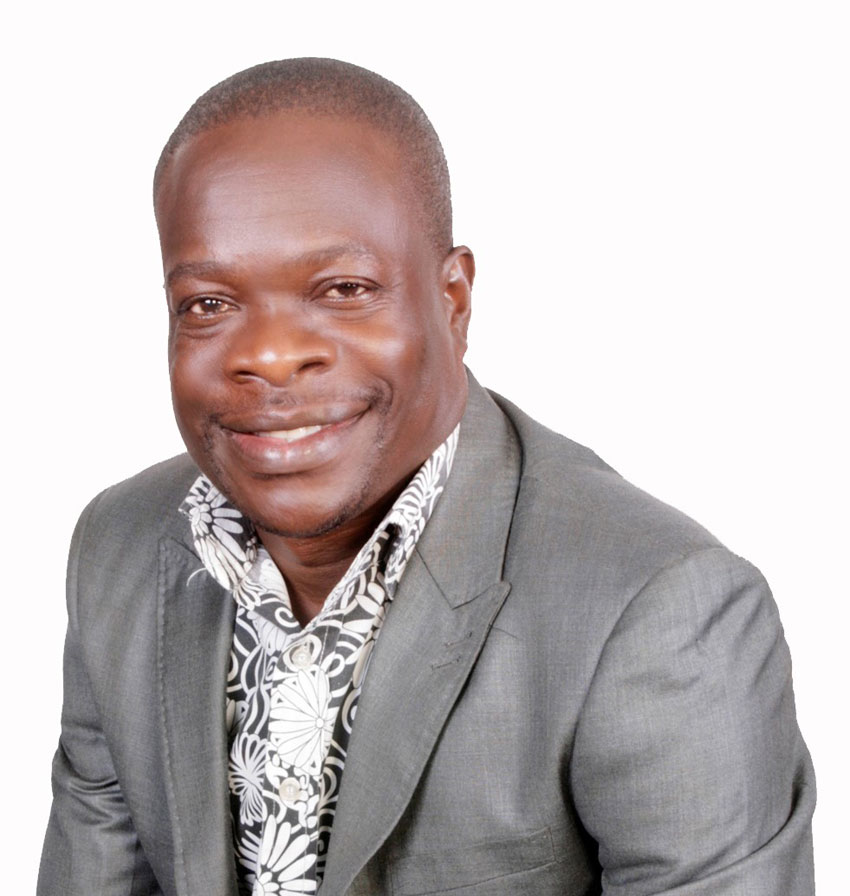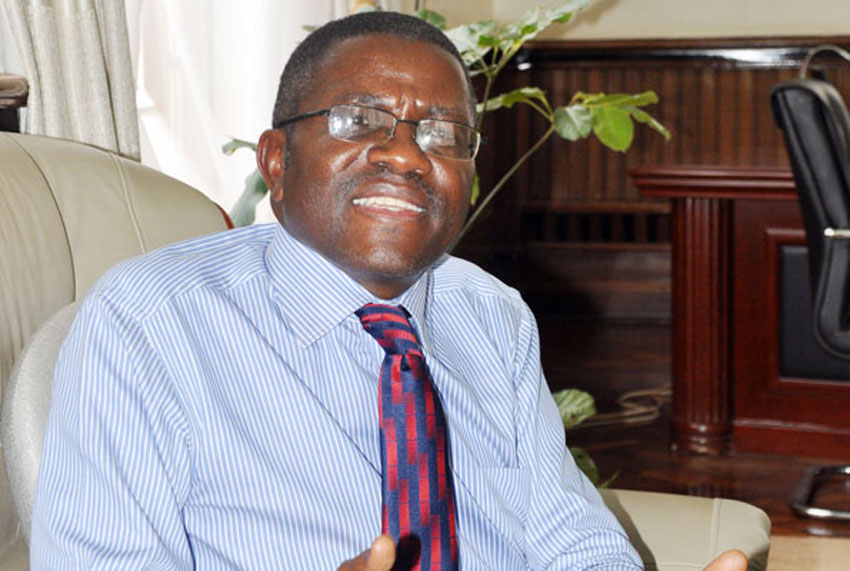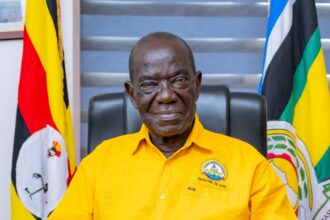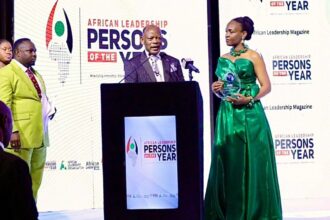“Nobody came to read Shakespeare to the floating island to remove it from the dam, it took engineers to do that.” is a statement made by His Excellency the President of the Republic of Uganda during his address to the nation in combating the COVID-19 pandemic. This statement raised anger among many of my friends in the Arts and Culture industry saying this was a deliberate way by the President to UNDERMINE CULTURE. Indeed I was also angered at first but when I gave it a second thought, I realised the President was clear and particular. On the two occasions he said ‘Shakespeare’. So I kept asking myself why he didn’t say ‘Nobody came to read Kintu and Nambi, Ruhanga and Nkya or Labongo and Gipir among others…? (These are some of our common local stories used in our education system to teach our culture/history). It is at this moment that I asked myself from whence cometh ‘Shakespeare’ Culture?
As we celebrate WORLD CULTURE DAY today 21st May 2020 from our various confinements, I thought I should share a few thoughts in regards to culture, my understanding of H.E the President’s statement and importance of culture to our economy and in our society.
If I can remember very well, there is no single day when the president ever gave a speech and concludes it without making a statement or even quoting a proverb in his mother tongue, I assume that would be an incomplete speech to him. Besides his local dialect he seems to have basic knowledge of a number of other dialects in Uganda. We have witnessed him on a number of occasions using phrases in Luo. In the same way he has integrated phrases from other regions of Uganda including Lusoga (relatively pronounces words correctly), Luganda and others. We have also seen this during all his addresses during this lockdown period and actually the word ‘Kwetsyamura’ (sneezing out) has been integrated into everyone’s dialect to the extent that popular musicians and actors have adopted the word. This is an indication that the President loves culture to the core.
In fact he is one of the few if not only Uganda’s President who comfortably and reasonably uses his local dialect with ease and without fearing criticisms during his addresses including the state of the Nations Address where English as the official language should be used fully. On this note, he deserves to be commended. Secondly, I would like to agree with the President trying to understand from where all this is coming from given the global approach to scientists. Scientists in the market worldwide are premium earners. Now where one has to make a choice between a scientist and an artist this is understanble more especially when it comes to prioritisation considering our economic challenges. However, in my own opinion the President’s choice of words and phrasing is what would have raised eyebrows among the people especially the non-scientists.
On the other hand in line with the President’s statement above, it is important to note that science cannot live in isolation therefore will not solve everything on its own. As much as science discovers, arts invents which means that the two co-exist to provide social-economic solutions and that is what should be promoted. In absentia of that, we would be judging a fish’s intellect on its ability to climb a tree vs a Chimp’s ability to swim across a river. With the scenario of Journalists vs Engineers on the incident of the floating island at Nalubaale dam, we all got to know what happened and what was being done through journalist hence not useless as it was portrayed. That is what kept us calm and hopeful in the confinement of our houses. In addition, it is the President’s ARTISTIC MANNER OF PRESENTATION that has always simplified the otherwise complicated scientific jargons and on a number of occasions he has come out to question why simple things are being given complicated names. Case in question was the issue of ‘active cases’ rather than ‘those who haven’t recovered and still in hospital’. The President’s demonstration of keeping people off the streets through indoors physical exercises was art and to a great extent this is healthy living without any adverse effects. It is therefore not the Pythagoras Theory, Archimedes’ Principle, or Mole Concept that the President employees.
BY THE WAY THE SYMBOL OF CORONAVIRUS, TOOK AN ARTIST’S EFFORT TO DESIGN. If I am not mistaken, artist are already at the forefront in the fight against COVID-19. It’s COUNSELLING that makes a coronavirus patient to understand that there is hope after getting infected and hence no need to panic. In a situation where a scientist gets an occupational hazard necessitating amputation, it is the fellow scientists who will carry out surgery but it is the COUNSELLOR who will make the amputated person to learn to live with the new life of disability.
To further elaborate my argument of Science and Art/Culture coexistence is the merger of Margaret Trowell School of Industrial and Fine Art (MTSIFA) and the Faculty of Technology (FOT) to form College of Engineering, Design, Art and Technology (CEDAT) Makerere University which was approved by the University Senate on 4th November 2010. As I read through the document ‘Operationalization of the College of Engineering, Design, Art and Technology (CEDAT), it is clear that the merger was even overdue. The document further highlights the reasons for the merger as follows:
1. The technological advancement in the twenty-first century has further reduced the gap between art, design and technology, which more than ever before, calls for interdisciplinary pedagogical approaches between the artists, designers, architects, surveyors, construction managers and engineers.
2. This academic cooperation springs from the practical-based teaching and learning methods in FOT and MTSIFA which emphasize creativity and innovation aimed at solving societal problems.
3. FOT students and staff have from time to time collaborated with MTSIFA academic staff and students on various research projects aimed at improving materials, products and systems for sustainable industrial development
4. The glaring co-relation between the Faculties of Margaret Trowel School of Industrial and Fine Art (MTSIFA) and Technology (FOT)
5. The longstanding mutual relationship that MTSIFA and FOT have enjoyed since the 1980s
6. FOT students would come to MTSIFA for Art history and Drawing classes, while MTSIFA students sought the technological input of FOT while executing their major projects in the various art and design disciplines
The author of this document concludes by saying that ‘therefore, the merger of FOT and MTSIFA to form a College of Engineering Design Art and Technology is a step in the right direction which has long been overdue.’
During the 80s and early 90s when HIV/AIDS was at its peak, when every measure had failed to curb down the scourge, it took the artists getting on the frontline to weaken the disease. Scientists and the government had to seek advice and help or should I say collaborations from people like Prof. Rose Mbowa (R.I.P.), a celebrated artist and lecturer from Makerere University Department of Music Dance and Drama and other to fight the pandemic.
Some of you will remember ‘Gampisi’, ‘Ndiwulira’, ‘Hydra’ and ‘Yellow Card’ among others. This was purely arts that was employed to bring about total behaviour change to shift the HIV/AIDS scenario. Art proved effective first of all in creating awareness about the deadly HIV/AIDS and also simplifying communication about the same. Creating awareness of many other issues that affects society has been made easy through ART.
Having said that, I would like to briefly highlight some of the roles culture plays in our society and perhaps if we invest more in it and put it at the forefront much would be achieved.
The Culture sector has a significant potential to answer the unemployment problem in Uganda especially among the youth. This is untapped gold which we MUST interest ourselves in. With more than 12,460 SMEs (Uganda Bureau of Statistics’ 2013 survey) created in the culture sector it means job creation. These SMEs range from music, film and video producers, audio visual media, crafts and accessories, performing arts, drama/stage/screen play, kiosks of video/music retailers, playwrights and song writers, cultural festival and concerts to mention but a few. This industry potentially absorbs youth who are skilled as well as those who are semiskilled and unskilled.
In economic terms agriculture/food is Uganda’s backbone of economy which simply translates to Culture being a key element of economic development in Uganda. Food is among the elements that defines our cultural identity ie Luwombo(Baganda) and Malkwang/Boo,Lapena(Luos) Besides food, about ugx 11.3 billion is the estimated revenue collected from culture enterprises in Uganda, the baseline taken to be approximately 12,460 SMEs in the sector (Uganda Bureau of Statistics’ 2013 survey) .License fee, registration and other regulatory requirements to formalise business generates revenues to the economy of Uganda. According to World Trade for Culture 2013 Uganda exported approximately ugx 427 billion of creative goods and services ($239 million).
Culture is what defines our identity without which we wouldn’t be able to tell who comes from where even with the skin colour differences. Of course this includes food, dress code, artefacts, music and dance among others. Among the key survival core strategy which the President talked about is agriculture/food which is a key element in defining our cultural identity.
Culture boosts tourism the tourism sector despite the fact that it is among the vulnerable economy as His Excellency the President put it since it is among the most hit sectors worldwide. As I’ve always said, the time has come for us to put cultural tourism at the forefront since it is the only aspect that makes us distinctive and gives us a competitive advantage over others. Other aspects of tourism such as animals will always be found somewhere else hence requiring more efforts to beat our competitor.
Since culture is the way of life, it is obvious that COVID-19 has greatly affected our way of life especially that we cannot come together anymore to share ideas on our common values, knowledge and create in our social groups. We simply have to rethink how to do this at the moment as we wait for the wave to pass. How we use technology will decide how we keep our culture alive. In addition, there is need for our government to rethink and committee reasonable resources to culture sector of course through our mother Ministry of Gender Labour and Social Development the same way it is advocating for science with the main view that culture is one of the main pillars of development and sustenance of communities and that no society can progress in its absence. If it is understood well that the two disciplines need each and should co-exist/. That is the beginning of catapulting our economy hence development.
What’s World Culture Day (WCD?)
During the World Decade for Cultural Development 1988 to 1997, United Nations Educational Scientific and Cultural Organization (UNESCO) pronounced May 21st as World Culture Day. This day was observed annually worldwide up to 1997 with themes from UNESCO that were endorsed by member countries. At the end of the Decade, Member States were urged to continue observing the day with national themes relevant to the States. In November 2001, further to the adoption of UNESCO’s Universal Declaration on Cultural Diversity, the General Assembly of the United Nations proclaimed 21 May as World Day for Cultural Diversity for dialogue and Development. Uganda as a Member State started commemorating this day from 1999 up to date.
The World Culture Day provides an opportunity to create awareness of the public on the importance of culture in development, deepen understanding of the values of Cultural Diversity and learning to “live together” better. As a way of operationalizing the mentioned importance of culture different themes have been identified over the years and celebrated.
Despite the fact that we are under the confinement of our homes, today 21st May 2020 Uganda joins the rest of the World to commemorate World Culture Day 2020 under the theme “Art, culture and Crises: Opportunities and Challenges in Uganda.” Main Activities among others will include an online Dialogue on the above theme to be discussed by a panel of experts and practitioners in the Art and Culture sector. The discussion will begin at 13:00hrs EAT. Please don’t forget to join us. Check our website/social mediaplatforms for details on how to join the conversation. www.uncc.co.ug, FB: Ugandantionalculturalcentre, Twitter: UNCC16
We do call upon the general public to join Uganda National Cultural Centre and celebrate this day through:
• Putting your cultural attire for both those in office and at home
• Those at home to encourage your household to speak your mother tongue
• Those at work teach a collage basic greetings in your mother tongue
• Prepare your traditional food for those at home
• Bombard your social media platforms with your cultural attire/traditional food/ your traditional dance/greetings in your mother tongue etc
Let us keep our culture alive as we preserve, promote and popularise Uganda’s Culture locally and globally.
Robert Musiitwa is the UNCC Public Relations Officer
Do you have a story in your community or an opinion to share with us: Email us at Submit an Article









